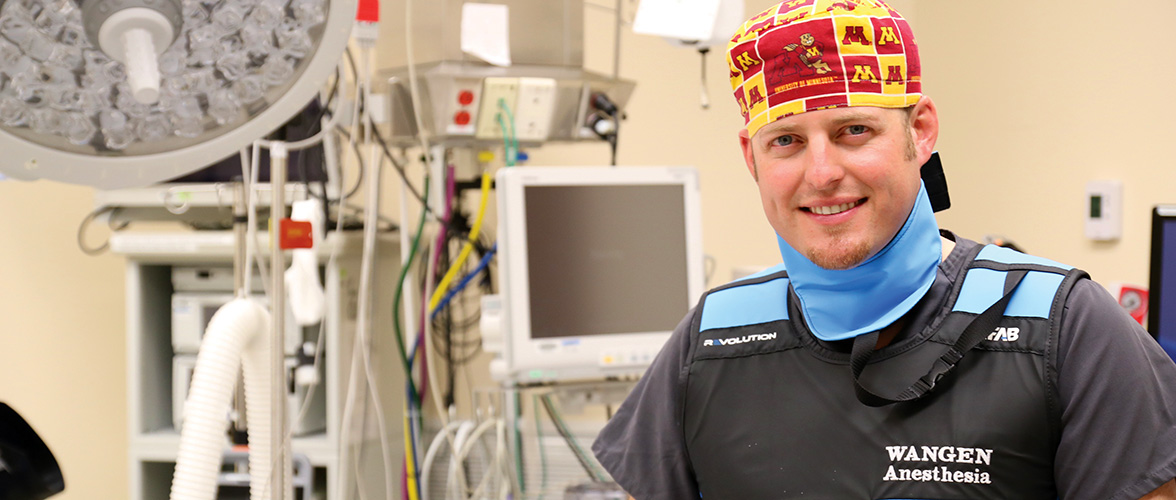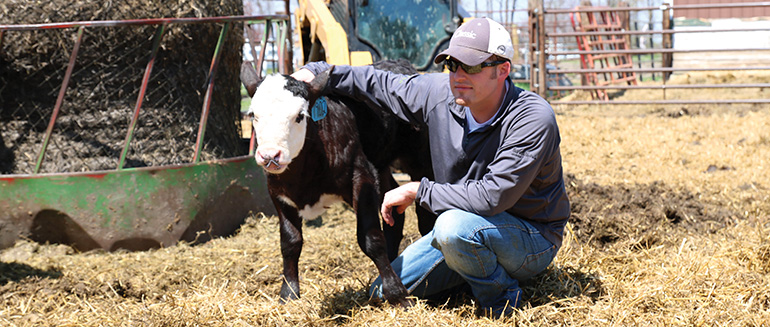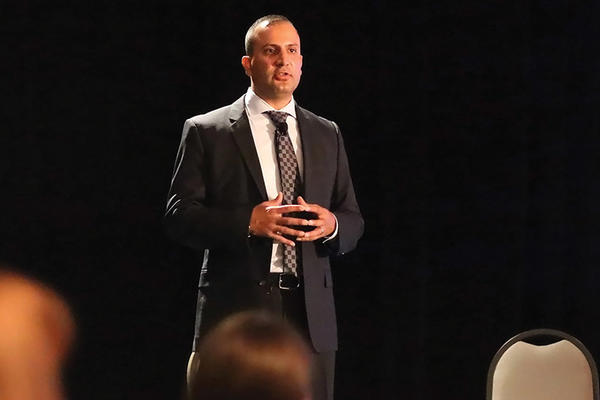Rooted to rural anesthesia care
After graduating from the School of Nursing, Casey Wangen headed home to Crookston to be a CRNA
October 29, 2019

Trauma is everywhere and Crookston, Minnesota — a town of 8,000 located 100 miles from the Canadian border — is no different. As a nurse anesthetist at the local hospital, Casey Wangen, DNP ‘16, APRN, CRNA, knows that means his days are often high-stress and fast-paced.
“It is a lot of adrenalin and requires fast-on-your-toes thinking. It is very dynamic and changes by the minute. Your day can go from nothing to a 17-hour shift,” said Wangen.
In one day he can see the full spectrum of life, resuscitating a premature newborn and then hours later be in surgery with a 99-year-old with a broken hip. “One day I am doing lots of regional anesthesia, or blocks, then I am doing lots of spinal anesthesia for knee or hip replacements,” said Wangen. “We get to do emergency cases, traumas, and we are in obstetrics helping with labor pains. Then 10 minutes later I can be in the ER stabilizing a person who just got crushed by a bull or got an arm taken off by a piece of farm equipment. Like, boom, just like that my day changed. I love the responsibility. No day is even close to the same. I like that.”
Across rural America, Certified Registered Nurse Anesthetists (CRNAs) are the primary providers of anesthesia care. In Crookston, CRNAs are the only providers of anesthesia care.
At the critical access hospital in town, RiverView Health, Wangen is one of four CRNAs that provide all the anesthesia services — including surgical anesthesia, pain management, vascular access and emergency services — for the 25-bed hospital with about a dozen surgeons.
His work varies compared to that of peers he graduated with at the University of Minnesota, who largely practice in metro areas. “Their scope of practice is different than mine. I’m responsible for providing a variety of services throughout the entire hospital, whereas larger facilities have separate staff for different areas,” said Wangen. “Most of them are not doing regional anesthesia, like placing epidurals and spinal anesthetics, which is more the practice of their physician colleagues.”
As a nurse anesthetist in rural Minnesota, he said he spends anywhere from 30 to 70 hours at the hospital each week. He leans on regional anesthesia, or blocks, which are easier to recover from and typically mean less opioids are prescribed in the end. “It is very personalized,” said Wangen.
Wangen says that practicing in a small town means that he knows many of his patients.
“In all of my training at the University of Minnesota, I would rarely see a patient again after a procedure,” said Wangen. “Here, in Crookston, I see them at the grocery store, at the bank or a sporting event. I see them at social outings, at restaurants. It was strange at first, but not anymore, since it happens all the time.”
Barn therapy
Now a father of two, Wangen lives on a ranch just outside of town with his wife, children, cows, horses and baby chickens.
“The barn is my therapy,” said Wangen. “I can be as strained and busy as ever at the hospital, but I know when I get home, I have to check on the horses and cows. As soon as I start with that, everything else just dissipates. It all goes away once I am out there.”

Crookston, sitting in the fertile Red River Valley, is a community built on agriculture. His family events can be held in a shop on a farmyard or might involve competing in rodeos.
“I am just rooted here so deep,” said Wangen. “It is God’s country. The farm life, the culture here, it all just suits me.”
Metro education readied him for rural practice
Wangen, who already had a bachelor’s degree in exercise physiology from Minnesota State University Moorhead, came to the University of Minnesota School of Nursing to earn a master’s degree. After earning his master’s degree in 2011, he practiced as an ICU nurse in a North Dakota hospital for two years before returning to the University of Minnesota to earn a Doctor of Nursing Practice degree.
As a student in the DNP nurse anesthesia program, he knew he’d have a variety of clinical experiences that would prepare him for a Crookston practice. “The U of M did a good job of setting up multiple rotations at different sites that are CRNA only, which really prepared me to do the work I am doing at Crookston now,” said Wangen. “I got to experience being in the city and I interacted with so many anesthesia providers, saw so many different techniques and used so many different medications in different ways.”
Wangen knew when he applied to the nurse anesthesia program that he would return to Crookston to provide care. His family’s roots run deep in the area, with family who are farmers and others who are health care providers.
“As soon as I graduated, we were northbound and the cityscape was in our rear view mirror,” said Wangen

